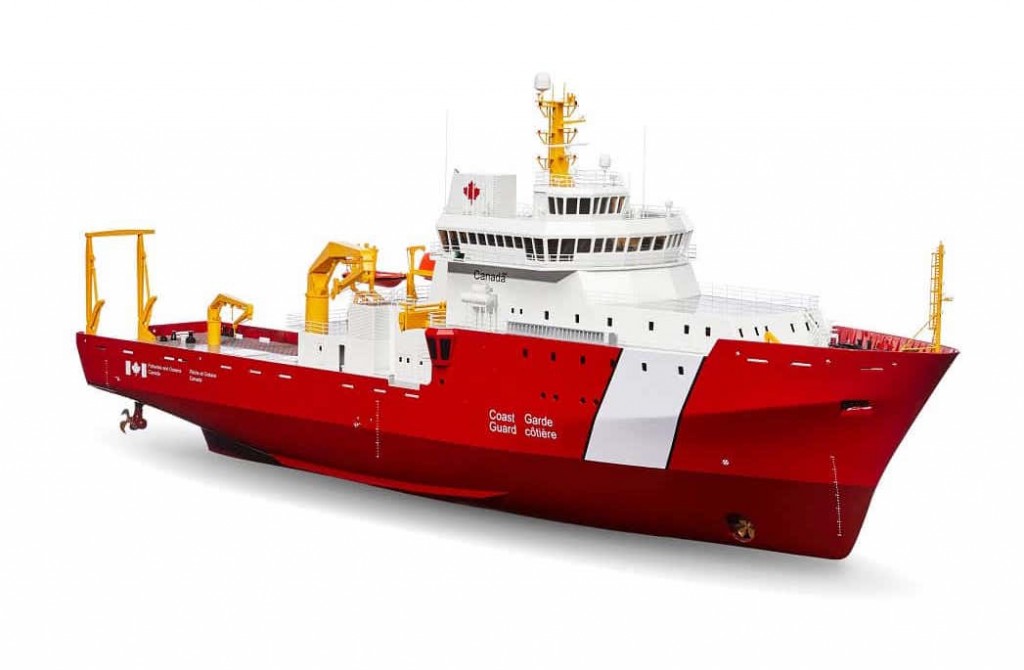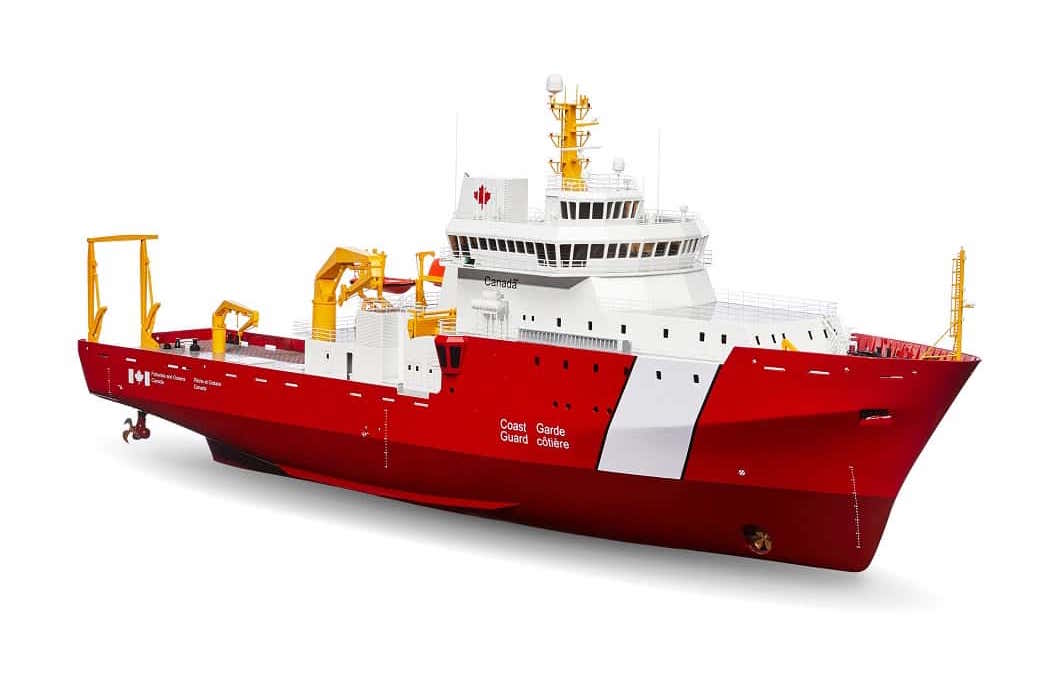(OTTAWA) — The government of Canada has awarded a contract of $453.8 million to Seaspan’s Vancouver Shipyards to enable the company to transition the offshore oceanographic science vessel (OOSV) project from the design phase to full construction.
Construction of the OOSV will begin in spring 2021, with delivery expected in 2024.
The OOSV will replace CCGS Hudson, the Canadian Coast Guard’s oldest and largest science vessel. The vessel will be capable of performing multiple tasks, including oceanographic, geological and hydrographic survey missions. This work will contribute to Canada’s understanding of oceans and the impacts of climate change.
The government of Canada remains firmly committed to implementing the National Shipbuilding Strategy (NSS) and delivering important benefits for Canadian shipyards and suppliers across Canada. This contract is expected to create or sustain more than 700 jobs annually.

“Today’s announcement demonstrates why the National Shipbuilding Strategy is such a strong investment for this country. With this contract, 700 Canadians will have meaningful employment building a vessel that will strengthen our environmental response and ocean research. We’re putting Canadians to work while equipping the women and men of our Coast Guard with a state of the art, modern offshore oceanographic science vessel that will enable them to continue serving Canadians proudly,” said Bernadette Jordan, minister of fisheries, iceans and the Canadian Coast Guard.
“There are clear advantages to building this ship in Canada for the Canadian Coast Guard. This contract will mean jobs for workers at the shipyard, opportunities for suppliers and investments in Canada’s economy. It also means a stronger marine industry for Canada, one that will deliver benefits for years to come,” said Francois-Philippe Champagne, minister of innovation, science and industry.
“As part of the National Shipbuilding Strategy, Seaspan Shipyards will soon begin building this new offshore oceanographic science vessel right here in North Vancouver. This project, made possible with a large investment by the federal government, will create good jobs here on the North Shore and when completed, will help keep our oceans healthy and clean for future generations,” said Jonathan Wilkinson, minister of environment and climate change and member of Parliament for North Vancouver.
“Coming on the heels of the first full fleet of new fisheries science vessels being delivered, this build contract for the offshore oceanographic science vessel signals the critical transition from the design phase of the vessel to full-rate construction. We look forward to officially moving the program out of engineering and into the yard, and to cutting steel in the very near future. Watching the iconic red and white of a Canadian Coast Guard ship taking shape in our yard never gets old,” said Mark Lamarre, chief executive officer, Seaspan Shipyards.
Quick facts
• Under the NSS, Seaspan’s Vancouver Shipyards is building the OOSV and up to 16 multipurpose vessels for the Canadian Coast Guard, as well as two joint support ships for the Royal Canadian Navy.
• Seaspan’s Vancouver Shipyards recently delivered the third and last of three offshore fisheries science vessels to the Canadian Coast Guard, marking the completion of the first class of large ships built and delivered under the NSS.
• This new and modern OOSV will be able to respond to the government of Canada’s oceanographic scientific research requirements for the next 30 years.
• The new OOSV will replace CCGS Hudson as the Coast Guard’s primary East Coast ocean science research vessel. The service life of CCGS Hudson is planned to end in 2024, at which point the ship will be approximately 60 years old and decommissioned.
• As of the end of December 2020, the government of Canada has awarded approximately $17.34 billion of NSS-related contracts across the country. Of this value, approximately $5.65 billion, or 32.5 percent, has been awarded to companies in western Canada, including small or medium-sized enterprises with less than 250 full-time employees.
• The Industrial and Regional Benefits (IRB) policy will be applied to this procurement. The IRB policy applies to contracts awarded under the NSS, requiring contractors to invest 100 percent of their contract’s value in Canada’s economy.
• In addition, the NSS value proposition requires that Seaspan’s Vancouver Shipyards make investments in the greater Canadian marine industry equal to 0.5 percent of the value of the contracts it receives under the strategy. These investments must be directed to the three priority areas: human resources development, technology investment and industrial development.
– Public Services and Procurement Canada

